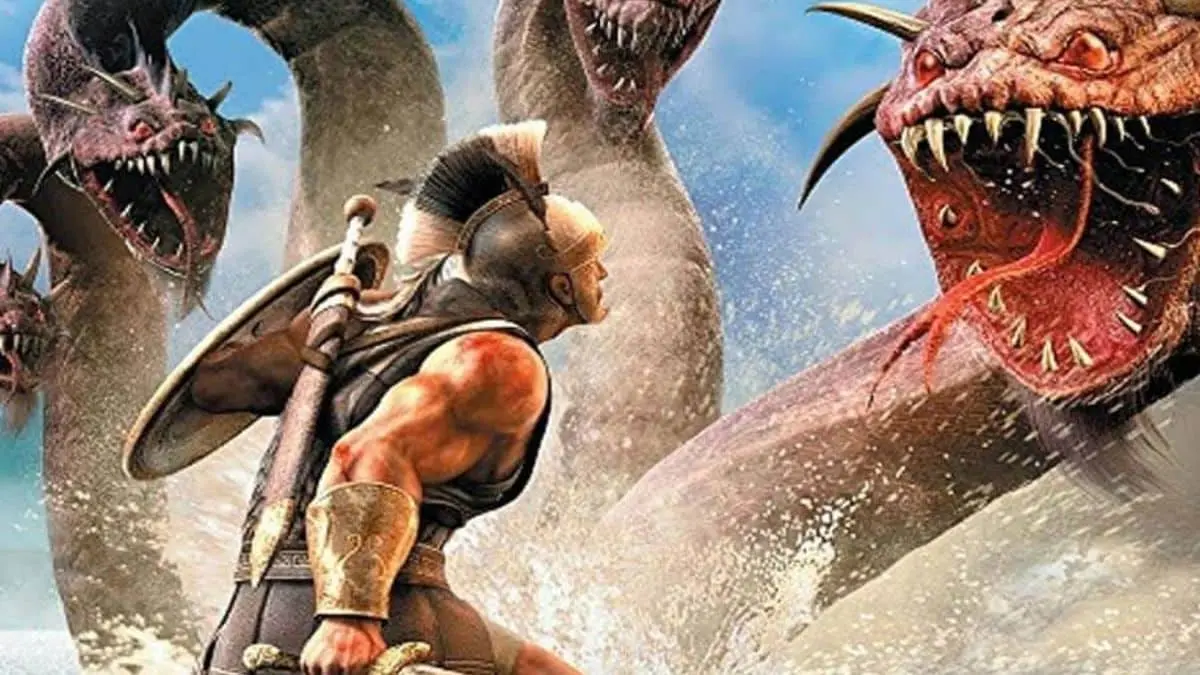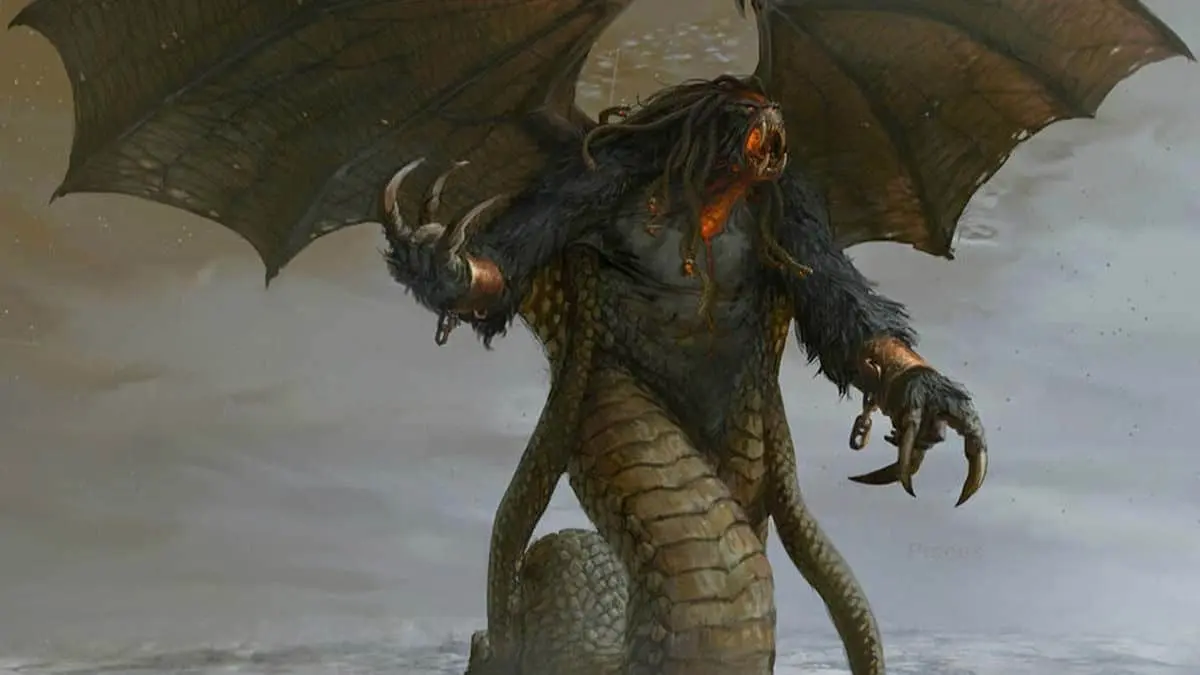Greek mythology is filled with terrifying monsters that tested the strength and courage of heroes. From serpentine beasts to shape-shifting horrors, these creatures were designed to be nearly invincible. But which Greek monster was the hardest to defeat? While many monsters proved formidable, some stood out as particularly impossible to conquer. Let’s dive into the deadliest creatures in Greek mythology and determine which one posed the greatest challenge.
The Lernaean Hydra – A Regenerating nightmare
The Hydra, a monstrous serpent with multiple heads, is one of the most infamous creatures in Greek mythology. According to legend, the Hydra had the ability to regrow two heads for every one that was cut off, making it an almost unkillable beast.
Why Was It So Hard to Defeat?
- Regeneration: Every time a hero cut off one of its heads, two more would grow in its place, making traditional combat ineffective.
- Poisonous Blood and Breath: The Hydra’s very presence was deadly; its breath could kill, and its blood was toxic enough to poison rivers.
- Lived in a Swamp: The creature’s lair in the marshes of Lerna made it difficult for any warrior to gain stable footing while fighting it.
How Was It Defeated? Hercules, as part of his Twelve Labors, was tasked with slaying the Hydra. Realizing that cutting off its heads only made things worse, he had his nephew Iolaus cauterize each stump with fire to prevent regeneration. Finally, he buried the immortal head under a massive rock, ensuring it could never return.

Typhon – The Father of Monsters and a God-Slayer
Typhon wasn’t just any monster—he was a primordial force of destruction. Described as a towering beast with a hundred dragon heads, flaming eyes, and the ability to unleash hurricanes, Typhon was Zeus’s greatest challenge.
Why Was He So Hard to Defeat?
- Gigantic Strength: Typhon was so powerful that he overpowered the gods and forced them to flee Olympus.
- Elemental Fury: He could control storms, fire, and earthquakes, making him a near-apocalyptic force.
- Shape-Shifting Powers: Typhon could change his form, making it difficult for any opponent to predict his next move.
How Was He Defeated? Zeus eventually defeated Typhon, but not without a brutal struggle. The battle spanned across the world, with Typhon nearly winning at one point by ripping out Zeus’s sinews. Ultimately, Zeus recovered and used his thunderbolts to hurl Typhon into Tartarus, imprisoning him under Mount Etna.
The Chimera – A Deadly Hybrid Beast
The Chimera was another terrifying foe, a fire-breathing monster with the body of a lion, the head of a goat on its back, and a serpent for a tail. This bizarre combination of animals made the Chimera unpredictable and deadly.
Why Was It So Hard to Defeat?
- Fire Breath: Its ability to breathe fire made close combat extremely dangerous.
- Multiple Attack Points: Each part of the creature had its own offensive abilities—the lion for brute strength, the goat for surprise attacks, and the serpent for venom.
- Elusive Nature: The Chimera lived in rough terrain, making it difficult for warriors to engage in direct combat.
How Was It Defeated? The hero Bellerophon, with the help of the winged horse Pegasus, defeated the Chimera. From the air, he rained down attacks and eventually killed it by driving a lead-tipped spear into its throat, melting it from the inside with its own fire breath.
The Minotaur – A Labyrinth’s nightmare
While the Minotaur wasn’t a supernatural force like Typhon, it was a nearly unbeatable adversary due to its environment—the Labyrinth of Crete. Half-man, half-bull, the Minotaur was a monstrous carnivore that hunted and killed anyone who entered its domain.
Why Was It So Hard to Defeat?
- The Labyrinth: The maze itself was designed to be inescapable, giving the Minotaur a strategic advantage.
- Brute Strength: The Minotaur had immense physical power and could easily overpower most opponents.
- No Weapon: The people sacrificed to the Minotaur were left unarmed, making survival nearly impossible.
How Was It Defeated? Theseus, a Greek hero, navigated the Labyrinth using a ball of thread given to him by Ariadne. He was able to find his way back after slaying the Minotaur with a sword, finally freeing Athens from the monster’s terror.

Cerberus – The Guardian of the Underworld
Cerberus, the three-headed hound of Hades, wasn’t technically defeated, but rather bested by wits. This massive dog guarded the gates of the Underworld, preventing the living from entering or the dead from escaping.
Why Was It So Hard to Defeat?
- Three Heads: Each head had its own awareness, making surprise attacks impossible.
- Immortal and Unyielding: Cerberus was a creature of the Underworld, making it nearly impossible to kill.
- Deadly Bite: Its fangs dripped with venom, and its mere presence was terrifying.
How Was It Defeated? Hercules was tasked with bringing Cerberus to the surface as his final labor. Rather than slaying it, he subdued it with brute strength alone—an incredible feat, proving that sometimes raw power could triumph over mythic beasts.
Which Monster Was the Hardest to Defeat?
While all of these creatures were fearsome, Typhon stands out as the hardest to defeat. Unlike the other monsters, which were ultimately slain by mortals, Typhon required the might of the king of the gods himself to be stopped. Even then, it took an earth-shattering battle that nearly saw Zeus fall before he could claim victory. Typhon’s ability to overpower even the Olympians cements his place as the most formidable monster in Greek mythology.
Greek mythology thrives on the stories of impossible battles and incredible heroes. Each of these monsters pushed the limits of courage and strength, proving that sometimes, even gods and demigods needed more than just brute force to win. But in the end, it was Zeus’s divine power that subdued the most terrifying creature of all—Typhon, the true monster among monsters.
Also Read: Why Hindu Mythology Emphasizes Dharma and Karma









